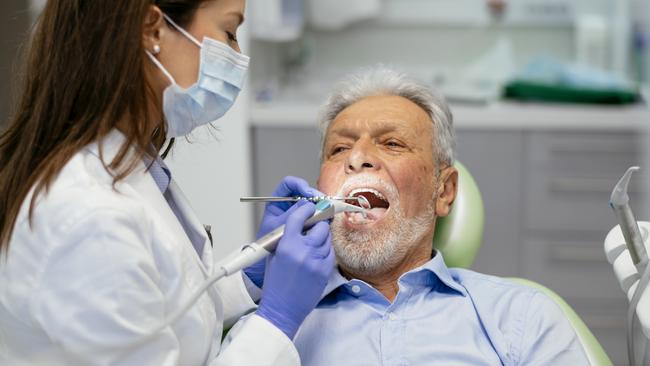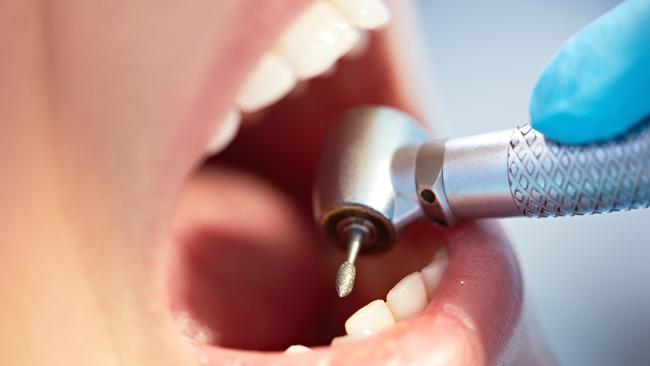University of Melbourne experts warn oral health research funding ‘dire’
A new study has found oral health disease, which is a $1bn-a-year plus health burden, is lacking crucial research funding.

Victoria
Don't miss out on the headlines from Victoria. Followed categories will be added to My News.
Oral health experts are warning Australia is in a “dire” situation if there is not an urgent and substantial increase in research funding.
A new study led by University of Melbourne Professor Alastair Sloan has found oral health disease – which includes the whole mouth and dental issues – is a $1bn-a-year plus health burden, yet it attracts less than 1 per cent of the research funding budget.
A situation, he says, that has Australia behind the United Kingdom and the US.
“A lot of dental and oral disease is highly preventable,” Professor Sloan says. “Yet we are seeing an alarming rise in the number of Australians experiencing toothaches and food avoidance because of dental problems and avoidable dental-related hospitalisations – including in young children.
“These are chronic infectious diseases that are entirely preventable and can be treated with smart, non-antibiotic interventions.”
Professor Sloan says research into prevention is key and is also needed to better understand the disease burden and to help turnaround the depletion of the public oral health workforce.
The Head of Melbourne Dental School he says the study, published in the Australian Dental Journal, highlights that major government research funding schemes aren’t keeping up with the burden of oral diseases.

“If you have a fair share of the funding pie, you can ask serious questions around infection, how it takes hold, develop novel therapies, enhance current therapies and improve services at a public health level,” Professor Sloan says.
“You can also try to prevent disease and develop good oral hygiene public health messaging and engagement and use public health methodology to understand where specifically across the State the greatest burden of disease exists.
“What we are asking for is fairer funding to grow a research workforce and mature it in the same way as you would fund cancer research.”
The study by experts from the Universities of Melbourne, Sydney, Queensland and Adelaide used a Fair Research Funding index to look at Australian government research funding schemes for oral health science with other disciplines from the burden of disease perspective.
The results showed the total funding from the National Health and Medical Research Council (NHMRC) for dental disorders from 2017 to 2021 was $15m, about 0.23 per cent of its total funding for the top 75 diseases with the highest disease burden.
The Australian Research Council allocated $3.43m to oral science and the Medical Research Future Funds $1.88m.
In comparison, the study reports that while immunological diseases and environmental and occupational health are not on the Australian burden of disease list, the NHMRC funded $381.6m and $87.7m respectively for these areas over the same period.
“Funding is inequitable according to the disease burden,” Professor Sloan said.
In an Australian-first, he said the Melbourne Dental School – which is part of the University of Melbourne – is developing a unique model that will see select clinical students wanting to specialise in areas such as periodontics but with an interest in research offered a pathway similar to that available to medical specialists in training.
“These pathways help to grow our own (researchers),” Professor Sloan said.
“If we had more funding for oral health research, it would allow us to bring in other specialities such as bioscientists, bioengineers and chemists into our sphere and develop research programs that have benefit, are highly translational and impactful and make a difference to patients immediately.
“This is how I, as an applied bioscientist, became involved in this field of research and brings oral/dental research into wider areas of translational biomedicine. At the same time, we would be creating our clinician scientists of the future.”



